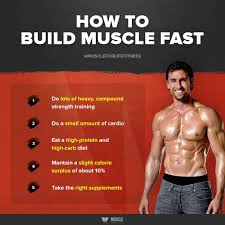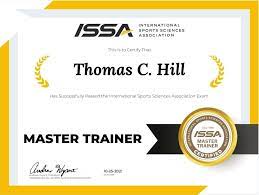
There are many benefits to doing resistance training at home. These include building lean and stronger muscles, lowering blood pressure, and increasing muscle strength. They can also lower blood pressure and increase the production of bone-building osteoblasts. Simply find an exercise that suits your schedule to get started.
Strengthens muscles
Good health is strongly tied to muscle-strengthening activities. Despite this connection, many adults do not exercise at the recommended levels. This area of research is not well-researched despite its important role in the prevention and treatment chronic diseases. Future research should concentrate on standardizing assessment tools and developing devices for measuring the intensity of muscle-strengthening workouts.

Builds lean muscle
A good way to build lean muscle is by doing strength training exercises. It will assist you in everyday tasks such as lifting boxes, carrying groceries and climbing stairs. It will also increase your confidence and help you achieve a leaner body composition. It is crucial to learn what it takes to build muscle before you start doing muscle building exercises.
Lower blood pressure
Research shows that home resistance training exercises can lower blood pressure. These exercises are designed to target the whole body and lower blood pressure. However, these exercises can have adverse side effects. One of these adverse effects is an increased sympathetic tone.
Stimulates osteoblasts
Weight-bearing exercise is the best way increase bone density and mass. This kind of exercise puts the most stress on the bones and triggers bone-forming cells called osteoblasts. In women, weight bearing exercises can improve bone strength as well as mineral density.
Increases metabolism
Resistance training exercises can be very beneficial in increasing your metabolism and helping you reach your weight loss goals. They are also great for weight management and long-term weight control. Resistance training works the entire body by boosting your muscle size. Your total energy expenditure is affected greatly by your resting metabolism rate (RMR). Your resting metabolic rate (RMR), accounts for between 60-75% and 75% of your total calorie expenditure when you aren't exercising. In addition to burning fat, resistance training exercises help to preserve muscle tissue and prevent muscle breakdown.

This helps build bone
Weight-bearing exercises help build bones and force the body to fight gravity. These activities can be walking, jogging or climbing stairs. For people suffering from musculoskeletal disorders such as arthritis, weight-bearing exercise is also important. You should aim to build strong bones by engaging in weight-bearing activities for at least 30 minutes each day.
FAQ
Can I exercise after eating?
It all depends on the type of exercise that you are doing. Avoid doing strenuous activity after eating, as it can cause stomach cramps. Instead, focus on light aerobic activities like brisk walking or biking.
Do I need to eat before working out?
No. No. If you feel hungry after working out, it is a good idea to have a light snack like yogurt or fruit.
How many hours of sleep should I get every night?
The recommended amount of sleep varies depending on age, gender, and individual needs. Most adults need between 7 and 9 hours of sleep per night. Children and teens typically need between 7 and 9 hours of sleep each night. However, this number drops as they get older.
Statistics
- Adolescent girls were less active than adolescent boys, with 85% vs. 78% not meeting WHO recommendations of at least 60 minutes of moderate to vigorous intensity physical activity per day. (who.int)
- Globally, 28% of adults aged 18 and over were not active enough in 2016 (men 23% and women 32%). (who.int)
- One study showed that adults who watch more than 4 hours of television daily had an 80% higher risk of death from cardiovascular disease. (heart.org)
- Physical activity confers the following maternal and fetal health benefits: a decreased risk of pre-eclampsia, gestational hypertension, gestational diabetes (for example, 30% reduction in risk) (who.int)
External Links
How To
How to Burn Belly Fats Faster
Belly Fat is often thought of as a problem when trying to lose fat. If you look at it, belly fat is actually a positive thing. It's the amount of fat stored around your stomach that protects your organs from getting damaged. So let's see how to burn belly fat fast.
Lack of exercise and stress are the main reasons we store body fat. Because stress stimulates the release of cortisol hormone, it makes us hungry all the time. Cortisol is responsible for an increase in insulin levels. The excess calories stored as fat are then stored by insulin. Lack of sleep causes the release of adrenaline into our system, leading to increased appetite. Exercise helps to break down these extra calories.
There are many methods to lose belly fat. All of these methods can be used, depending on your budget. Here are some quick tips to get rid of belly weight.
-
Eat less food. You should eat smaller meals throughout the day than you would if you ate three big meals. This will help you consume less calories.
-
Get plenty of water. Water flushes out toxins, and keeps your body hydrated. Water before each meal can help you feel fuller longer and reduce your appetite so that you don't overeat.
-
Avoid unhealthy snacks. If you're looking for quick fixes, snack foods like chips, cookies, candies, etc. Although tempting, they can be very unhealthy. But avoid these fattening treats as they contain lots of empty calories and too much sugar. Instead, opt for healthy alternatives such as fruits, vegetables and whole grains.
-
Strength training should be done at least three times per week. Strength training increases muscle mass, which can help you burn more calories while still resting. Strength training strengthens bones, muscles and ligaments. It can also improve the heart, lungs, joints, and other body systems.
-
Walking or stretching is a good habit to do regularly. Stretching increases flexibility and mobility. It also reduces back pain. Walking can help you burn calories.
-
Reduce alcohol intake. Reduce alcohol intake. Alcohol is a waste of calories and has no nutritional value.
-
You can lose weight slowly. First, determine your current weight. Add 5%-10% of your total bodyweight to calculate your ideal size. Once you have reached your target weight, begin decreasing your daily calories intake by 500-1 000 calories until you reach your goal.
-
Avoid processed foods. These foods have high amounts of salt, sugar, and preservatives. Processed foods are often very convenient but don't provide enough nutrients to keep you healthy.
-
Don't skip breakfast! Breakfast improves concentration, memory, energy, and stamina. Breakfast should contain protein (like eggs), fibre (like oats), as well as complex carbohydrates (like oatmeal).
-
Have regular bowel movements. Constipation and irregularity can cause gas and bloating. This can be prevented by drinking plenty of water and increasing fiber intake.